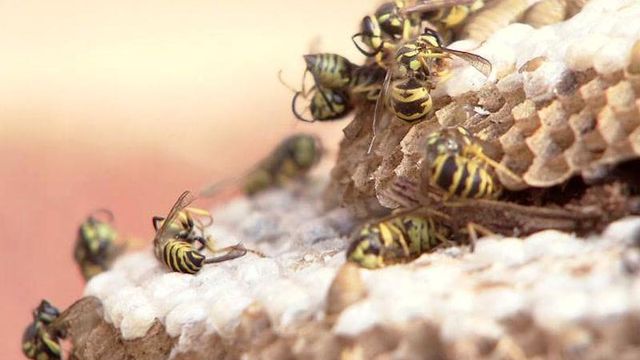Expert: Yellow jacket swarms swell this summer
A Triangle insect expert said Monday that the weather this year has provided optimum conditions for a summer buzzing with busy yellow jackets, ready to swarm and sting in defense of their territory.
Posted — UpdatedBassett said yellow jacket populations are higher this year than in the last five years and that homeowners should watch out for nests, which can easily blend into the ground.
"They look like little pancakes stacked in a hole," Bassett said, adding that more "pancake" shapes mean more yellow jackets.
Yellow jackets, which are often mistaken for bees but are actually in the wasp family, build intricate nests in the ground to protect their queen, and they're ready to fight to defend her, Bassett said.
Patty Miglarese found that out the hard way. Her husband was attacked by a swarm of yellow jackets when he stepped on a nest in the backyard of their Wake County home last summer.
"He ran from the back of the house all the way around to the front, ran into the front door, slammed the door behind him (and) ran into the bathroom," Miglarese said. "He still got stung several times. We killed about 20 yellow jackets in the house."
This year, when she found another nest in her yard, she didn't hesitate to call an exterminator.
"After you go through an incident like that, I don't think you fool around anymore," Miglarese said.
Some people successfully exterminate bees and wasps on their own, Bassett said, but it's imperative to be careful and thorough. Use a spray that shoots 10 to 20 feet, making sure to saturate the nest, and always have a pre-planned escape route, he said.
• Credits
Copyright 2024 by Capitol Broadcasting Company. All rights reserved. This material may not be published, broadcast, rewritten or redistributed.






